- 70
- 91
- 28
- 42
TLDW
Hope you're having a lovely day

LG makes refrigerators

LG prints on their box which customers never see, a slip of paper inside the refridgerator, and in the user manual a clause that goes "lol you can't sue us" clause. Literally nothing anyone would see until after purchase, and you're probably not seeing the box even if you have it delivered and installed.

LG sucks at making refrigerators, so they die. Good thing there's a 10 year warranty!

LG refuses to honor the warranty

LG also goes "haha you signed away your right to sue us because we printed it on the box and that's equivalent to you signing away your right to arbitration"

Louis Rossman believes this is shifty behavior beyond the pale, unsprisingly. He orders a fridge and plans on refusing the order if that's the language on the box

- 3
- 18
Apple's iOS 17.4 update is now available, introducing new emoji and a cryptographic security protocol for iMessage, alongside some major changes to the App Store and contactless payments for the iPhone platform in Europe. Apple is making several of these changes to comply with the EU's Digital Markets Act (DMA), a law that aims to make the digital economy fairer by removing unfair advantages that tech giants hold over businesses and end users.
iOS 17.4 will allow third-party developers to offer alternative app marketplaces and app downloads to EU users from outside the iOS App Store. Developers wanting to take advantage of this will be required to go through Apple's approval process and pay Apple a “Core Technology Fee” that charges 50 euro cents per install once an app reaches 1 million downloads annually.
iPhone owners in the EU will see different update notes that specifically mention new options available for app stores, web browsers, and payment options.
The approval process may take some time, but we know that at least one enterprise-focused app marketplace from Mobivention will be available on March 7th. Epic is also working on releasing the Epic Game Store on iOS in 2024, and software company MacPaw is planning to officially launch its Setapp store in April.
iOS 17.4 allows people in the EU to download alternative browser engines that aren't based on Apple's WebKit, such as Chrome and Firefox, with a new choice screen in iOS Safari that will prompt users to select a default browser when opened for the first time. While no browser alternatives have been officially announced, both Google and Mozilla are currently experimenting with new iOS browsers that could eventually be released to the public.
Apple is also introducing new APIs that allow third-party developers to utilize the iPhone's NFC payment chip for contactless payment services besides Apple Pay and Apple Wallet in the European Economic Area. No alternative contactless providers have been confirmed yet, but users will find a list of apps that have requested the feature under Settings > Privacy & Security > Contactless & NFC.
While Apple previously revealed it was planning to drop support for progressive web apps (PWAs) in the EU to avoid building “an entirely new integration architecture” around DMA compliance, the company now says it will “continue to offer the existing Home Screen web apps capability” for EU users. However, these homescreen apps will still run using WebKit technology, with no option to be powered by third-party browser engines.
- 17
- 32
You can see that these Rich people don't think at all about anything but throwing money at problems to pretend that they're the ones who do the work
- 10
- 11
So safari keeps moving all my tabs to private mode by some kind of glitch. Wouldn't be a big deal if I would had stayed logged in those tabs but it auto log out and then it can glitch again and move the new tabs from regular mode to private mode and then it deletes all tabs in private mode.
- 28
- 36
- 13
- 19
My Instagram stopped working, and so did my Gmail and backup Outlook. What the frick is going on? Codecels explain pls
- 16
- 36
TL;DR: EV batteries are so heavy, they wear down their tires faster and pollute the air with toxic chemicals. This study finds that that's worse for the environment than a normal ICE car. Go green, just stop oil.
- 11
- 19
Last one a few years ago is because they forgot how to BGP, wonder what this one is.
Symptoms are users being signed out and then unable to login. People (boomers) incapable of searching for "Facebook down" will think they've been hacked.
- 20
- 14
Source: Trust Me Bro


- 114
- 135
No drama (yet), reposting for posterity.
Very little on orange site: https://news.ycombinator.com/item?id=39596491
Archive: https://archive.is/HfRvZ
Google's Culture of Fear
inside the DEI hivemind that led to Gemini's disaster
Mike Solana, Mar 4, 2024
Following interviews with concerned employees throughout the company, a portrait of a leaderless Google in total disarray, making it “impossible to ship good products at Google”
Revealing the complicated diversity architecture underpinning Gemini's tool for generating art, which led to its disastrous results
Google knew their Gemini model's DEI worldview compromised its performance ahead of launch
Pervasive and clownish DEI culture, from micro-management of benign language (“ninja”) and bizarre pronoun expectations to forcing the Greyglers, an affinity group for Googlers over 40, to change their name on account of not all people over 40 have grey hair
No apparent sense of the existential challenge facing the company for the first time in its history, let alone a path to victory
Last week, following Google's Gemini disaster, it quickly became clear the $1.7 trillion-dollar giant had bigger problems than its hotly anticipated generative AI tool erasing white people from human history. Separate from the mortifying clownishness of this specific and egregious breach of public trust, Gemini was obviously — at its absolute best — still grossly inferior to its largest competitors. This failure signaled, for the first time in Google's life, real vulnerability to its core business, and terrified investors fled, shaving over $70 billion off the kraken's market cap. Now, the industry is left with a startling question: how is it even possible for an initiative so important, at a company so dominant, to fail so completely?
This is Google, an invincible search monopoly printing $80 billion a year in net income, sitting on something like $120 billion in cash, employing over 150,000 people, with close to 30,000 engineers. Could the story really be so simple as out-of-control DEI-brained management? To a certain extent, and on a few teams far more than most, this does appear to be true. But on closer examination it seems woke lunacy is only a symptom of the company's far greater problems. First, Google is now facing the classic Innovator's Dilemma, in which the development of a new and important technology well within its capability undermines its present business model. Second, and probably more importantly, nobody's in charge.
Over the last week, in communication with a flood of Googlers eager to speak on the issues facing their company — from management on almost every major product, to engineering, sales, trust and safety, publicity, and marketing — employees painted a far bleaker portrait of the company than is often reported: Google is a runaway, cash-printing search monopoly with no vision, no leadership, and, due to its incredibly siloed culture, no real sense of what is going on from team to team. The only thing connecting employees is a powerful, sprawling HR bureaucracy that, yes, is totally obsessed with left-wing political dogma. But the company's zealots are only capable of thriving because no other fount of power asserts, or even attempts to assert, any kind of meaningful influence. The phrase “culture of fear” was used by almost everyone I spoke with, and not only to explain the dearth of resistance to the company's craziest DEI excesses, but to explain the dearth of innovation from what might be the highest concentration of talented technologists in the world. Employees, at every level, and for almost every reason, are afraid to challenge the many processes which have crippled the company — and outside of promotion season, most are afraid to be noticed. In the words of one senior engineer, “I think it's impossible to ship good products at Google.” Now, with the company's core product threatened by a new technology release they just botched on a global stage, that failure to innovate places the company's existence at risk.
As we take a closer look at Google's brokenness, from its anodyne, impotent leadership to the deeply unserious culture that facilitated an encroachment on the company's core product development from its lunatic DEI architecture, it's helpful to begin with Gemini's specific failure, which I can report here in some detail to the public for the first time.
First, according to people close to the project, the team responsible for Gemini was not only warned about its “overdiversification” problem before launch (the technical term for erasing white people from human history), but understood the nebulous DEI architecture — separate from causing offense — dramatically eroded the quality of even its most benign search results.
Roughly, the “safety” architecture designed around image generation (slightly different than text) looks like this: a user makes a request for an image in the chat interface, which Gemini — once it realizes it's being asked for a picture — sends on to a smaller LLM that exists specifically for rewriting prompts in keeping with the company's thorough “diversity” mandates. This smaller LLM is trained with LoRa on synthetic data generated by another (third) LLM that uses Google's full, pages-long diversity “preamble.” The second LLM then rephrases the question (say, “show me an auto mechanic” becomes “show me an Asian auto mechanic in overalls laughing, an African American female auto mechanic holding a wrench, a Native American auto mechanic with a hard hat” etc.), and sends it on to the diffusion model. The diffusion model checks to make sure the prompts don't violate standard safety policy (things like self-harm, anything with children, images of real people), generates the images, checks the images again for violations of safety policy, and returns them to the user.
“Three entire models all kind of designed for adding diversity,” I asked one person close to the safety architecture. “It seems like that — diversity — is a huge, maybe even central part of the product. Like, in a way it is the product?”
“Yes,” he said, “we spend probably half of our engineering hours on this.”
The inordinately cumbersome architecture is embraced throughout product, but really championed by the Responsible AI team (RAI), and to a far greater extent than Trust and Safety, which was described by the people I spoke with closest to the project as pragmatic. That said, the Trust and Safety team working on generation is distinct from the rest of the company, and didn't anchor on policy long-established by the Search team — which is presently as frustrated with Gemini's highly-public failure as the rest of the company.
In sum, thousands of people working on various pieces of a larger puzzle, at various times, and rarely with each other. In the moments cross-team collaborators did attempt to assist Gemini, such attempts were either lost or ignored. Resources wasted, accountability impossible.
Why is Google like this?
The ungodly sums of money generated by one of history's greatest monopoly products has naturally resulted in Google's famously unique culture. Even now, priorities at the company skew towards the absurd rather than the practical, and it's worth noting a majority of employees do seem happy. On Blind, Google ranks above most tech companies in terms of satisfaction, but reasons cited mostly include things like work-life balance and great free food. “People will apologize for meetings at 9:30 in the morning,” one product manager explained, laughing. But among more driven technologists and professionals looking to make an impact — in other words, the only kind of employee Google now needs — the soft culture evokes a mix of reactions from laughter to contempt. Then, in terms of the kind of leadership capable of focusing a giant so sclerotic, the company is confused from the very top.
A strange kind of dance between Google's Founders Larry Page and Sergey Brin, the company's Board, and CEO Sundar Pichai leaves most employees with no real sense of who is actually in charge. Uncertainty is a familiar theme throughout the company, surrounding everything from product direction to requirements for promotion (sales, where comp decisions are a bit clearer, appears to be an outlier). In this culture of uncertainty, timidity has naturally taken root, and with it a practice of saying nothing — at length. This was plainly evident in Sundar's response to Gemini's catastrophe (which Pirate Wires revealed in full last week), a startling display of cowardice in which the man could not even describe, in any kind of detail, what specifically violated the public's trust before guaranteeing he would once again secure it in the future.
“Just look at the OKRs from 2024,” one engineer said, visibly upset. Indeed, with nothing sentiments like “improve knowledge” and “build a Google that's extraordinary,” with no product initiative, let alone any coherent sense of strategy, Sundar's public non-response was perfectly ordinary. The man hasn't messaged anything of value in years.
“Sundar is the Ballmer of Google,” one engineer explained. “All these products that aren't working, sprawl, overhiring. It all happened on his watch.”
Among higher performers I spoke with, a desire to fire more people was both surprising after a year of massive layoffs, and universal. “You could cut the headcount by 50%,” one engineer said, “and nothing would change.” At Google, it's exceedingly difficult to get rid of underperformers, taking something like a year, and that's only if, at the final moment, a low performer doesn't take advantage of the company's famously liberal (and chronically abused) medical leave policy with a bullshit claim. This, along with an onslaught of work from HR that has nothing to do with actual work, layers tremendous friction into the daily task of producing anything of value. But then, speaking of the “People” people —
One of the more fascinating things I learned about Google was the unique degree to which it's siloed off, which has dramatically increased the influence of HR, one of the only teams connecting the entire company. And that team? Baseline far crazier than any other team.
Before the pernicious or the insidious, we of course begin with the deeply, hilariously stupid: from screenshots I've obtained, an insistence engineers no longer use phrases like “build ninja” (cultural appropriation), “nuke the old cache” (military metaphor), “sanity check” (disparages mental illness), or “dummy variable” (disparages disabilities). One engineer was “strongly encouraged” to use one of 15 different crazed pronoun combinations on his corporate bio (including “zie/hir,” “ey/em,” “xe/xem,” and “ve/vir”), which he did against his wishes for fear of retribution. Per a January 9 email, the Greyglers, an affinity group for people over 40, is changing its name because not all people over 40 have gray hair, thus constituting lack of “inclusivity” (Google has hired an external consultant to rename the group). There's no shortage of DEI groups, of course, or affinity groups, including any number of working groups populated by radical political zealots with whom product managers are meant to consult on new cowtools and products. But then we come to more important issues.
Among everyone I spoke with, there was broad agreement race and gender greatly factor into hiring and promotion at Google in a manner considered both problematic (“is this legal?”) and disorienting. “We're going to focus on people of color,” a manager told one employee with whom I spoke, who was up for a promotion. “Sounds great,” he said, for fear of retaliation. Later, that same manager told him he should have gotten it. Three different people shared their own version of a story like this, all echoing the charge just shared publicly by former Google Venture investor Shaun Maguire:
https://twitter.com/shaunmmaguire/status/1760872265892458792
Every manager I spoke with shared stories of pushback on promotions or hires when their preferred candidates were male and white, even when clearly far more qualified. Every person I spoke with had a story about a promotion that happened for reasons other than merit, and every person I spoke with shared stories of inappropriate admonitions of one race over some other by a manager. Politics are, of course, a total no go — for people right of center only. “I'm right leaning myself,” one product manager explained, “but I've got a career.” Yet politics more generally considered left wing have been embraced to the point they permeate the whole environment, and shape the culture in a manner that would be considered unfathomable in most workplaces. One employee I spoke with, a veteran, was casually told over drinks by a flirty leader of a team he tried to join that he was great, and would have been permitted to switch, but she “just couldn't do the ‘military thing.'”
The overt discrimination here is not only totally repugnant, but illuminating. Google scaled to global dominance in just a few years, ushering in a period of unprecedented corporate abundance. What is Google but a company that has only ever known peace? These are people who have never needed to fight, and thus have no conception of its value in either the literal sense, or the metaphorical. Of course, this has also been a major aspect of the company for years.
Let's be honest, Google hasn't won a new product category since Gmail. They lost Cloud infrastructure to AWS and Azure, which was the biggest internet-scale TAM since the 90s, and close to 14 years after launching X, Google's Moonshot Factory, the “secret crazy technology development” strategy appears to pretty much be fake. It lost social (R.I.P. Google+). It lost augmented reality (R.I.P. Glass). But who cares? Google didn't need to win social or AR. It does, however, need to win AI. Here, Google acquired DeepMind, an absolutely brilliant team, thereby securing an enormous head start in the machine god arms race, which it promptly threw away to not only one, but several upstarts, and that was all before last week's Gemini fiasco.
In terms of Gemini, nobody I spoke with was able to finger a specific person responsible for the mortifying failure. But it does seem people on the team have fallen into agreement on precisely the wrong thing: Gemini's problem was not its embarrassingly poor answer quality or disorienting omission of white people from human history, but the introduction of black and asian Nazis (again, because white people were erased from human history), which was considered offensive to people of color. According to multiple people I spoke with on the matter, the team adopted this perspective from the tech-loathing press they all read, which has been determined to obscure the overt anti-white racism all week. With no accurate sense of why their product launch was actually disastrous, we can only expect further clownery and failure to come. All of this, again, reveals the nature of the company: poor incentive alignment, poor internal collaboration, poor sense of direction, misguided priorities, and a complete lack of accountability from leadership. Therefore, we're left with the position of Sundar, increasingly unpopular at the company, where posts mocking his leadership routinely top Memegen, the internal forum where folks share dank (but generally neutered) memes.
Google's only hope is vision now, in the form of a talented and ferocious manager. Typically, we would expect salvation for a troubled company in the heroic return of a founder, and my sense is Sergey will likely soon step up. This would evoke tremendous excitement, and for good reason. Sergey is a man of vision. But can he win a war?
Google is sitting on an enormous amount of cash, but if the company does lose AI, and AI in turn eats search, it will lose its core function, and become obsolete. Talent will leave, and Google will be reduced to a giant, slowly shrinking pile of cash. A new kind of bank, maybe, run by a dogmatic class of extremist HR priestesses? That's interesting, I guess. But it's not a technology company.
-SOLANA
- 44
- 71
- 20
- 76
- 6
- 21
- 23
- 35
The Official RDrama Computer Science Reading Group
My dear !codecels, hello and welcome to the first meeting of RDrama's Computer Science Reading Group! Here's the idea - we (read: I) pick a computer science textbook, then post a list of sections and exercises from that textbook each week. In the thread, feel free ask questions, post solutions, and bully people for asking stupid questions or posting stupid solutions. If you don't want to read along, I'll post the complete exercises in the OP, so you can solve them without needing to read the book.
SICP
The book I'm starting with is 'the Structure and Interpretation of Computer Programs' (abbreviated SICP). It's a software engineering textbook written by Gerald Jay Sussman and Hal Abelson from MIT. The book builds programming from the ground up: starting with a very simple dialect of Scheme and growing it into a language with lazy evaluation, object-orientation and a self-hosting compiler. It's a fun book: the exercises are hands-on and interesting, the writing is informative without being droll, and both the book itself and a corresponding lecture series (complete with a 80s synth rendition of 'Also Sprach Zarathustra') are available for free online.
Languages
The book uses (a small subset of) Scheme as its primary language, but feel free to try using a different language. The book's dialect of scheme is available through Racket, but most lisps will work with only minor changes. Other dynamically-typed, garbage-collected languages with higher-order functions will also not require much hacking: there is an edition written in JavaScript  , as well as a partial adaptation to python
, as well as a partial adaptation to python  . High-level, statically typed languages might also work: Java/Kotlin/C#
. High-level, statically typed languages might also work: Java/Kotlin/C#  seem doable, but I don't know those languages well. Strongly typed languages like Haskell will require some real hacks, and I'd avoid doing it in C, C++ or Rust.
seem doable, but I don't know those languages well. Strongly typed languages like Haskell will require some real hacks, and I'd avoid doing it in C, C++ or Rust.
Exercises
The book is split into five chapters:
- Building Abstractions with Procedures
- Building Abstractions with Data
- Modularity, Objects and State
- Metalinguistic Abstraction
- Computing with Register Machines
This week, I'll be posting exercises from the first chapter. The chapter is pretty easy for those familiar with programming already, so I just want to get it out of the way. Here are the selected exercises:
Exercise 1.8
Newton's method for cube roots is based on the fact that if
yis an approximation to the cube root ofx, then a better approximation is given by the value(x/y² + 2y) / 3. Use this formula to implement a cube-root procedure which is wrong by at most0.01.
Exercise 1.12
The following pattern of numbers is called Pascal's Triangle.
1
1 1
1 2 1
1 3 3 1
1 4 6 4 1
...
The numbers at the edge of the triangle are all 1, and each number inside the triangle is the sum of the two numbers above it. Write a procedure that computes elements of Pascal's triangle.
Exercise 1.18
Devise a procedure generates an iterative process for multiplying two integers in terms of adding, doubling, and halving and uses a logarithmic number of steps.
Exercise 1.31
Write a procedure called
productthat returns the product of the values of a function at points over a given range (product(l, r,step,f) = f(l) * f(l+step) * f(l + 2 * step) * ... * f(r)). Show how to definefactorialin terms ofproduct. Also use product to compute approximations to using the formulaπ/4 = (2 * 4 * 4 * 6 * 6 * 8 ...) / (3 * 3 * 5 * 5 * 7 * 7 ...)
Exercise 1.43
If
fis a numerical function andnis a positive integer, then we can form thenth repeated application off, which is defined to be the function whose value atxisf(f(...(f(x))...)). For example, iffis the functionx → x + 1, then thenth repeated application offis the functionx → x + n. Iffis the operation of squaring a number, then thenth repeated application offis the function that raises its argument to the2 * nth power. Write a procedure that takes as inputs a procedure that computesfand a positive integernand returns the procedure that computes thenth repeated application of f. Your procedure should be able to be used as follows:repeated(square,2)(5) = 625
Have fun! 
- 29
- 58
The company is Varda Space. They are experimenting with manufacturing drugs in space. Their first batch returned to earth today, landing in the Utah desert.
I know you're asking: why manufacture drugs in space? Well basically when creating crystals on earth, there is sometimes a more stable but less useful form that ends up emerging. I don't really understand this ( I failed chemistry lol) but kinda interesting
https://en.wikipedia.org/wiki/Disappearing_polymorphs
The specific drug made in space is called Retonavir, which is used for helping with HIV patients. So no, the title of this post wasn't even a joke. Lest you think that I made this up:
Outside of the memes, this is pretty neat. Who knows what other stuff we will manufacture in orbit, with the cost of space launches decreasing?
- 19
- 57
- 33
- 46
- 20
- 66
Guidance for PlayStation players:
— EA Help (@EAHelp) February 29, 2024
1⃣ On your console, go to Settings > System > Date and Time > Set Date and Time > Set Manually.
2⃣ Change the date to March 1, 2024.
3⃣ Once this change has been done, the game should function normally.
- 26
- 54
Somehow they've learned nothing and will likely be forced to go back to in house staff after some massive outage or security breach.
Top comment in the reddit thread is p good
Everyone at Canada Life in 3 months: What the heck does “do the needful” mean?






 tutorials on youtube have flooded the github project with floods of poo in loos begging to accept their PRs lmao
tutorials on youtube have flooded the github project with floods of poo in loos begging to accept their PRs lmao 



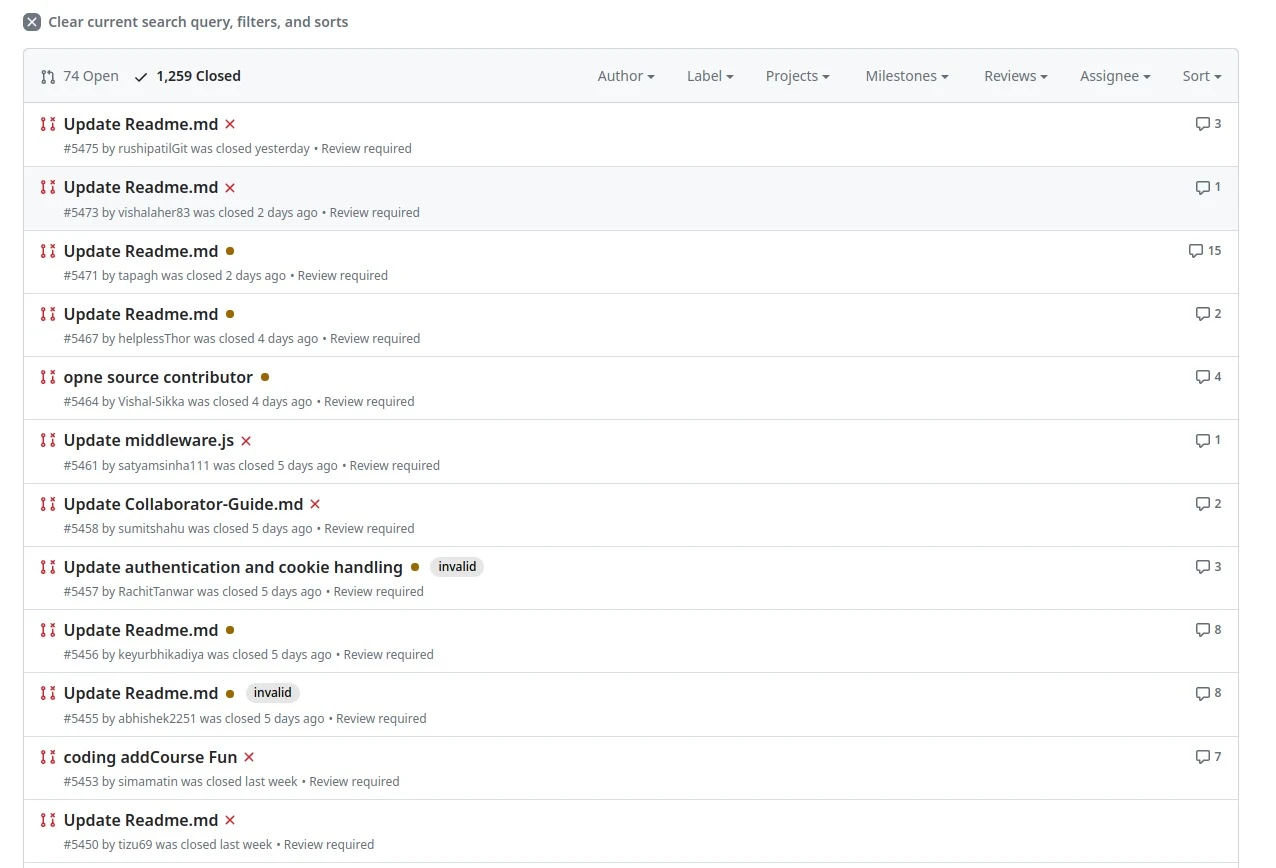
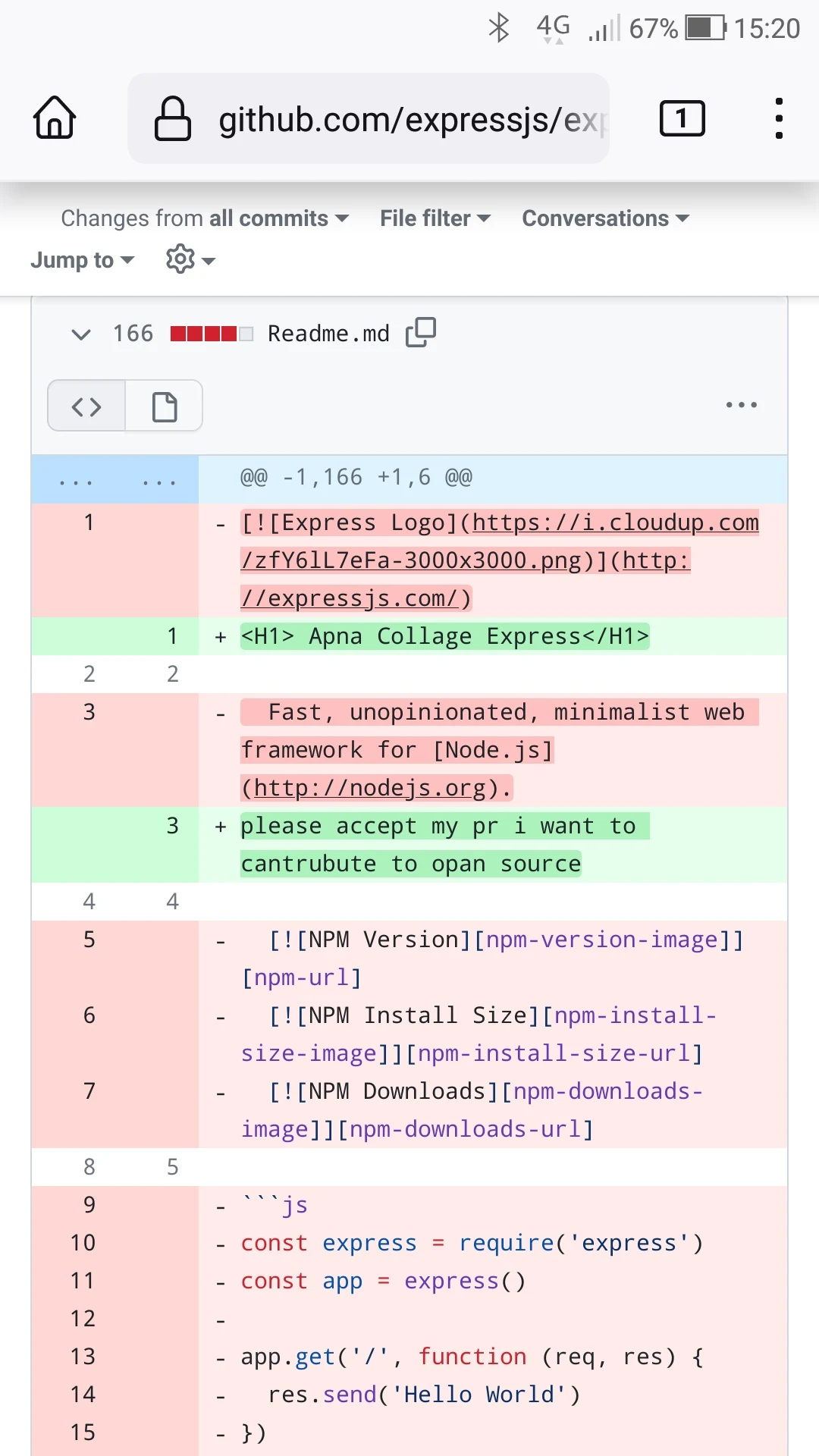

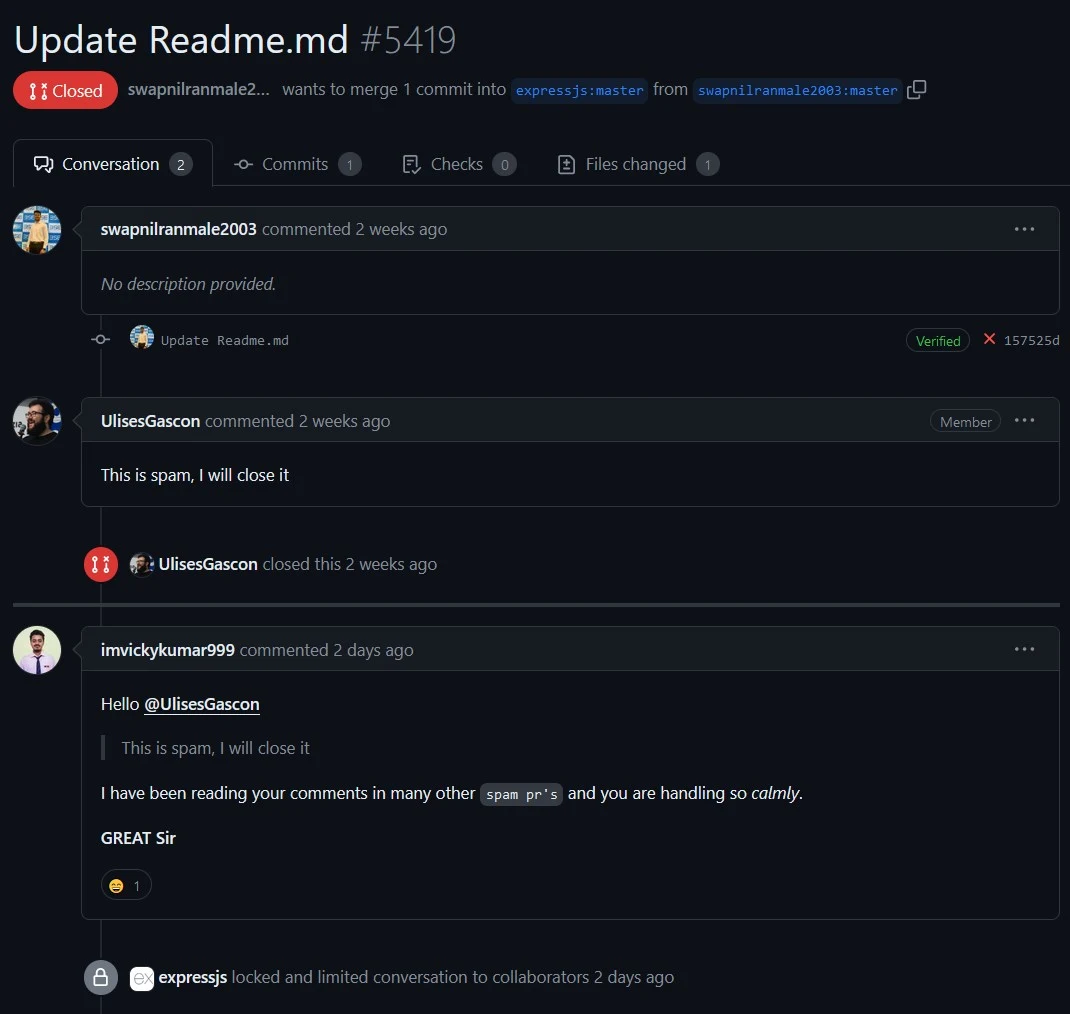
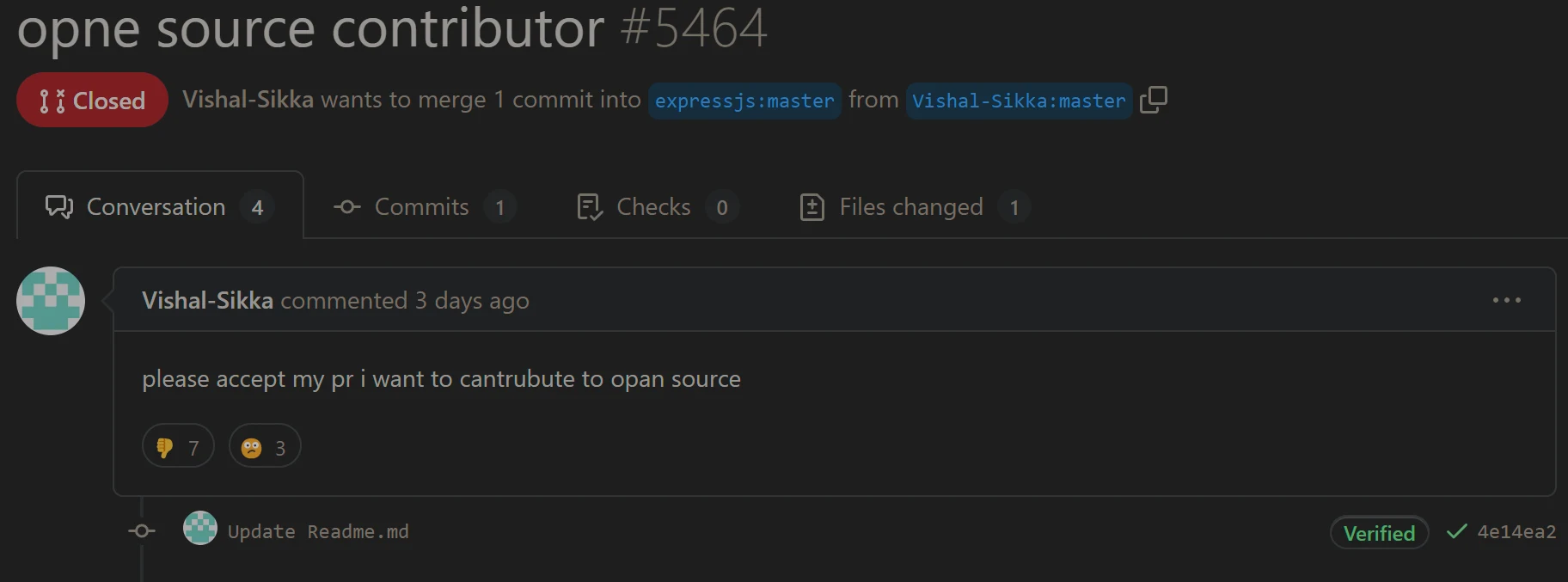






















 (this will piss off a VERY specific type of online Unix nerd
(this will piss off a VERY specific type of online Unix nerd 
 )
)














 Laugh
Laugh  Love
Love 











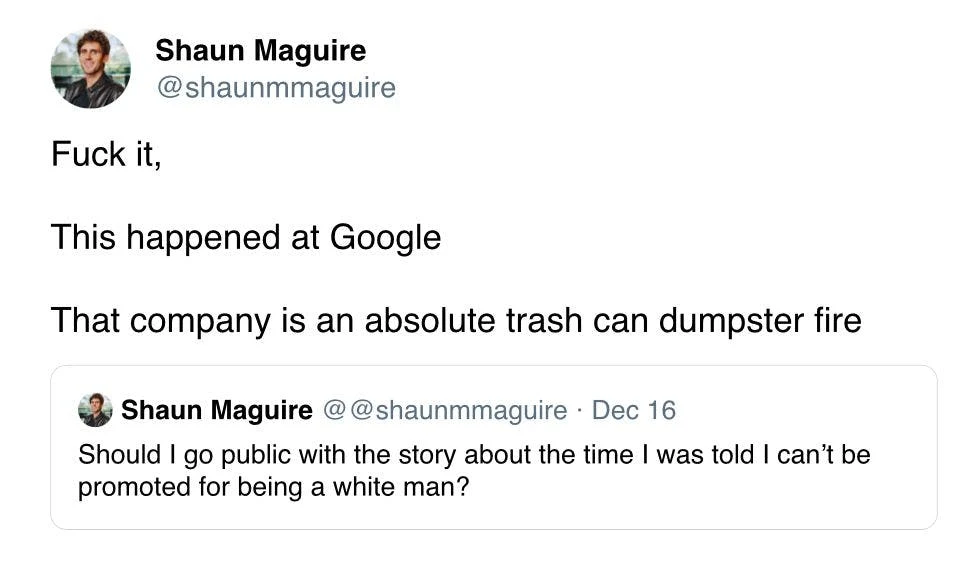

 Nightmare on Lemmy Street (A Fediverse GDPR Horror Story): You can't delete photos uploaded to Lemmy
Nightmare on Lemmy Street (A Fediverse GDPR Horror Story): You can't delete photos uploaded to Lemmy 












 touch foxglove NOW
touch foxglove NOW 





















